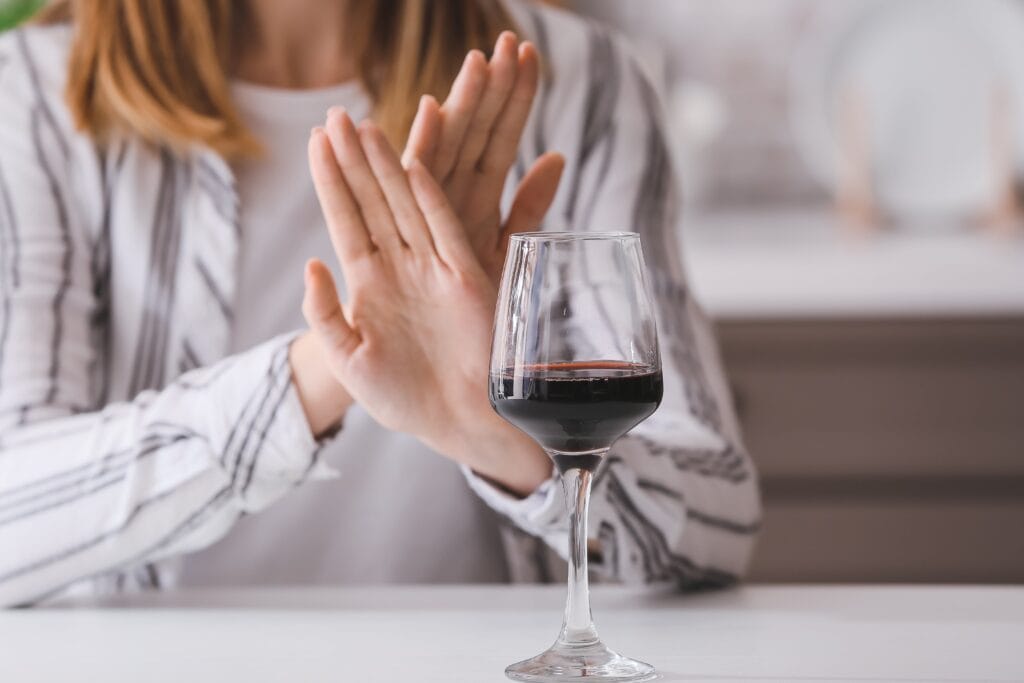If you’re in the midst of a struggle with alcohol addiction, you may be searching for viable ways to overcome it. There are natural things that can help you along the way, but it’s also important to point out that addiction is a disease. More often than not, while holistic and natural strategies have their place, you may benefit most from a structured, professional treatment approach.
How Alcohol Addiction Develops
Alcohol addiction is also called an alcohol use disorder or alcoholism, and it’s considered by the medical community to be a chronic disease. The inability to control or stop drinking even when it’s causing negative consequences characterizes alcohol addiction.
Factors contributing to the progression of addiction include:
- Genetic predisposition
- Mental health issues
- Environmental influences
- Stress or trauma
As someone consumes alcohol regularly, their tolerance usually increases, so they drink more. This can escalate into dependence, which is a physical reliance on alcohol to function normally. From there, addiction often takes hold and manifests in cravings, loss of control over drinking, and withdrawal symptoms when trying to quit.
The complexities of addiction are one of the reasons that natural approaches aren’t usually enough to overcome it.
7 Natural Ways to Combat Alcohol Addiction
Below are some natural strategies that aren’t a cure for addiction but can help along the way toward recovery.
1. Mindfulness and Meditation
Practicing mindfulness and meditation can help you learn better emotional regulation and self-awareness. Through mindfulness, you learn to observe thoughts, feelings, and cravings without judging them. This helps reduce the impulsivity associated with alcohol addiction.
Meditation can promote relaxation, help reduce stress, and enhance mental clarity.
All of this means you have a different set of coping strategies outside of substance use for managing triggers and cravings.
2. Exercising Regularly
Engaging in regular activity can help when you’re working to overcome addiction. Exercise releases endorphins, neurotransmitters that help you feel pleasure and well-being. That can help your brain’s reward system, which has been taken over by alcohol during addiction.
Exercise is also a coping mechanism for stress, anxiety, and negative emotions that tend to come with addiction, and you can improve your self-esteem and physical health.
3. Herbal Remedies
Some herbs might be helpful to support detoxing from alcohol and in reducing cravings. Examples include kudzu root, passionflower, and milk thistle. They may not only help with withdrawal symptoms, but also protect the liver from alcohol-related damage.
They can also help restore balance to your system, but you should always talk to a healthcare provider before using herbal remedies because they can interact with medications.
4. Nutritional Support
An integral part of supporting recovery from alcohol addiction is a nutritious diet. When you’re misusing alcohol, it frequently leads to nutritional deficiencies. Those can then make cravings and withdrawal symptoms worse.
Incorporating nutrient-dense foods can restore essential vitamins you may be missing, stabilize your blood sugar, and help you feel better.
Nutritional supplements like magnesium, amino acids, and vitamin B complex can help with alcohol detox and improve mental well-being.
5. Acupuncture
Traditional Chinese medicine practices like acupuncture can be a helpful part of a larger alcohol recovery plan. Acupuncture stimulates specific points related to cravings and addiction.
According to TCM, acupuncture can help regulate your body’s energy flow, alleviate withdrawal symptoms, and reduce stress.
6. Peer Support Groups
Support groups are a way to overcome addiction or maintain recovery. Programs like Alcoholics Anonymous (AA) or SMART Recovery facilitate social support and accountability as well as encouragement.
Peer support groups create a safe space so you can share experiences, struggles, and successes with other people who will understand.
Group meetings can help you gain insights, learn coping strategies, and create a support network for long-term sobriety.
7. Holistic Therapies
Along with what’s listed above, there is a broad range of potential holistic therapies that can help you overcome addiction. These include yoga, art, massage, and animal therapy.
They’re complementary to traditional addiction treatment, and they help you explore your underlying emotional issues, cultivate a sense of purpose, build resilience, and have more meaning in your life aside from alcohol use.
The Importance of Professional Treatment
Natural approaches can be valuable sources of support in your sobriety journey, but you should also recognize that addiction is a medical condition, very often requiring professional treatment. Trying to overcome alcohol addiction only through natural methods can create serious risks and may not address the underlying issues contributing to your addiction.
A professional treatment program, such as residential or outpatient rehab or medication-assisted treatment, can ensure that you experience a holistic approach to recovery delivered under the supervision of healthcare professionals.
One of the most significant risks of relying only on natural methods is the potential for untreated symptoms of withdrawal and resulting medical complications. Alcohol withdrawal can be physically and mentally distressing, with symptoms that range from mild anxiety and discomfort to severe seizures and delirium tremens.
Without appropriate medical supervision and interventions, withdrawal can be a severe health risk and, in some cases, can be life-threatening.
Natural methods also don’t necessarily address psychological, environmental, and social factors contributing to alcohol addiction, at least not on their own.
A professional treatment program offers comprehensive assessments for the identification of co-occurring mental health disorders, trauma, or social stressors potentially fueling addiction.
Then, with evidence-based therapies, you can explore and address these issues in a supportive therapeutic environment.
Further, trying to overcome alcohol addiction without professional guidance can put you in a cycle of relapse and frustration. Recovery often includes setbacks along the way, but in a professional treatment program, you learn strategies and skills to navigate challenges more effectively and sustain long-term sobriety.
While natural methods can be complementary to professional treatment for addiction, they should be a substitute for evidence-based care. You want a safe, effective, and sustainable path to recovery, which we can provide at San Diego Detox. Contact us to learn more.







